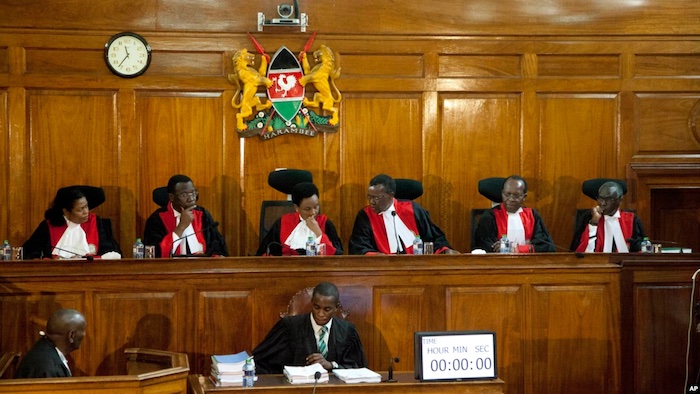On Monday, the Supreme Court of Kenya validated William Ruto’s victory in the August 9 presidential election, putting an end to weeks of political uncertainty and dealing a blow to opponent Raila Odinga, who had claimed fraud in the poll.
“The vote was unanimous in favor of this. We therefore dismiss the petitions and announce the first respondent (Ruto) as the president-elect “To paraphrase Chief Justice Koome:
In a close contest against veteran opposition figure Odinga, who is now supported by the ruling party, Deputy President Ruto, 55, won by a margin of less than two percentage points.
Last month, Odinga petitioned Kenya’s highest court stating he had “enough proof” to prove he was the rightful winner of the election, which was one of the costliest in all of Africa.
The election itself went off without a hitch, but the results have provoked violent rallies in Odinga strongholds, and there are fears that the debate could fuel bloodshed in a country with a history of post-poll instability.
For the past two weeks, judges have pored over piles of material to determine whether or not there were enough irregularities to overturn the election, as they did with the presidential vote in August 2017 that Odinga also disputed.
Just after 9:00 a.m. (0900 GMT), Koome began reading the judgement, which systematically enumerated the court’s response to the nine problems at the heart of the case.
She said that the IEBC’s voting system was secure, reliable, and transparent. This was in reference to the IEBC’s voting system.
She rejected every claim made by the petitioners, saying that any “irregularities were not of such size as to alter the ultimate outcome of the presidential election.”
The court rejected Odinga’s contention that hackers compromised IEBC systems and uploaded falsified result forms after reviewing his 72-page appeal.
Both candidates said they would accept the outcome, so when Ruto’s followers found out they started partying.
After the annulment in 2017, the IEBC was under intense pressure to conduct a credible election amid a rising cost of living problem.
However, the conclusion this year has caused a schism inside the IEBC, with four of the seven commissioners accusing chairman Wafula Chebukati of overseeing a “opaque” process.
Chebukati refuted the claims, saying that despite “intimidation and harassment,” he performed his duties in accordance with the law.
Every single presidential election result in Kenya since 2002 has been challenged by at least one party.
Turnout was at 65%, which is significantly lower than the 91% saw in the election in August 2017, and many commentators have attributed this to the growing disillusionment of the voting public.
Odinga has portrayed the legal challenge as a fight “for democracy and good governance” after he claimed he was defrauded of victory in the 2007, 2013, and 2017 elections.
Odinga was accused of seeking to “take another bite at the cherry through a judicially-forced re-run,” and in response, Ruto had urged the court to dismiss the case.
There were scores of deaths during the 2017 election due to protests.
After the 2007 election, more than 1,100 people were killed in politically driven confrontations between opposing tribes in Kenya.
On September 13, Ruto will be sworn in as Kenya’s fifth president since independence from Britain in 1963. He will take over a country struggling with inflation, high unemployment, and a devastating drought.
